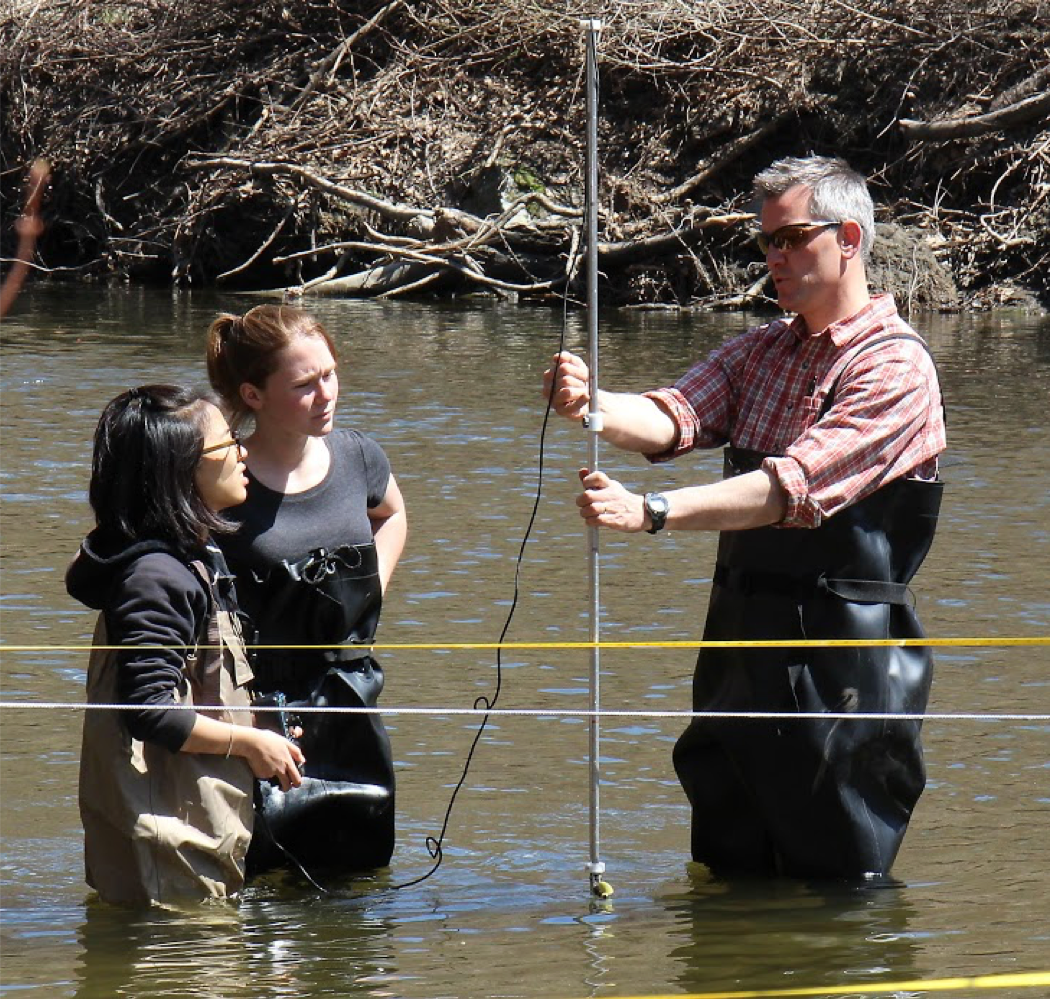For me, ecohydrology is a way to bring together my professional expertise (engineering, math and modeling) and my personal interests and values (curiosity, nature and the outdoors). In particular, I find ecohydrology fascinating because the laws of physics that govern water movement seem so simple, and, yet, the diversity of landscapes and vegetation leads to complexity and behaviors that are difficult to predict. Understanding the interactions of water and ecosystems is important for our earth and our societies, and I am grateful to be able to apply my skills to something I care about.
What are your undergraduate and graduate degrees in?
BSE in Civil Engineering and Operations Research from Princeton University, where my undergraduate thesis was on modeling multi-phase flow in porous media.
MSCE and PhD in Civil and Environmental Engineering from Stanford University, where my dissertation was on upscaling the effects of geologic heterogeneity on solute transport.
How did you arrive at working in/thinking about ecohydrology?
After completing my Ph.D., I pursued a post-doc at Princeton University with Mike Celia and Ignacio Rodriguez-Iturbé. During that time, I shifted my work from groundwater and contaminant transport to ecohydrology, inspired by Ignacio’s 2000 paper in WRR.
What do you see as an important emerging area of ecohydrology?
So many! I am currently interested in questions related to ecosystem services and nature-based solutions. I value landscapes and ecosystems in-and-of themselves, and I also think it is important for us to be able to quantify their role in providing infrastructure functions to our societies. In addition, recent advances in sensor technologies and data science provide new ways of asking and answering ecohydrologic questions. More details on these in our recent paper in Ecohydrology (Guswa et al., 2020).
Do you have a favorite ecohydrology paper? Describe/explain.
The paper by Ignacio Rodriguez-Iturbé in WRR in 2000 is what introduced me to ecohydrology, so that will always be a favorite of mine. Additionally, I really enjoy a 2002 paper by John Harte in Physics Today, “Toward a synthesis of the Newtonian and Darwinian worldviews.” For me, that paper defines much of what is exciting about ecohydrology.
What do you do for fun (apart from ecohydrology)?
I love teaching and engaging with our students across a range of engineering classes – from introductory design to fluid mechanics to mass and heat transfer. Outside of work, my family and I like to spend time outdoors: Hiking, biking (mountain and road), cross-country skiing, paddling. Also, during the pandemic, I have started learning piano.

 RSS Feed
RSS Feed